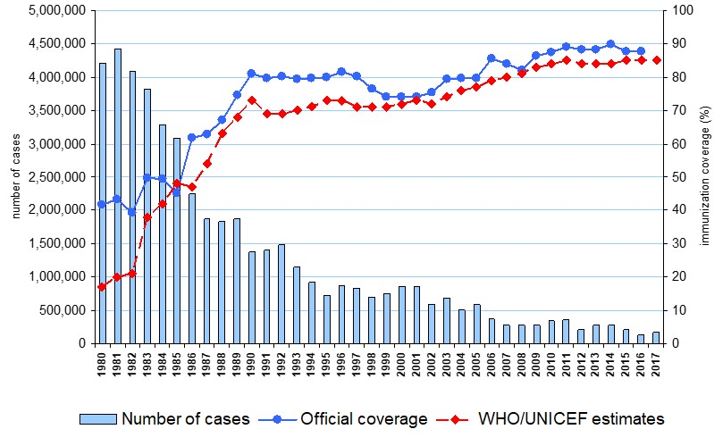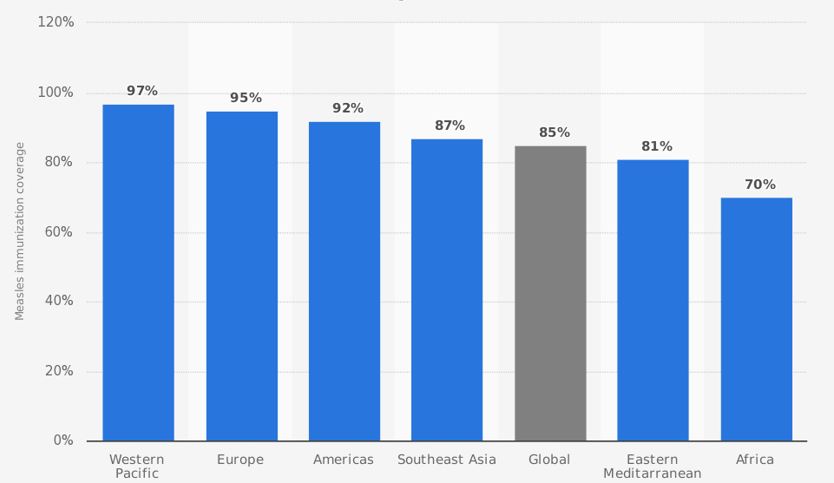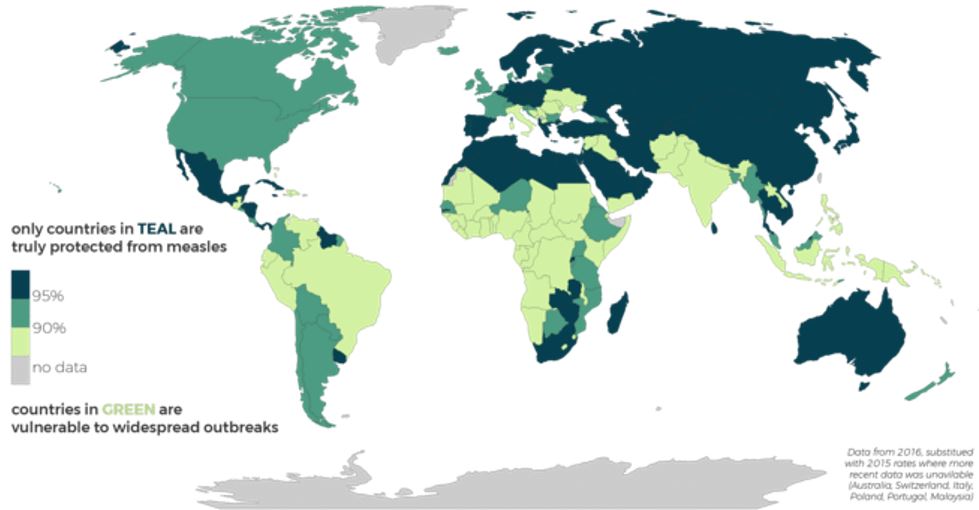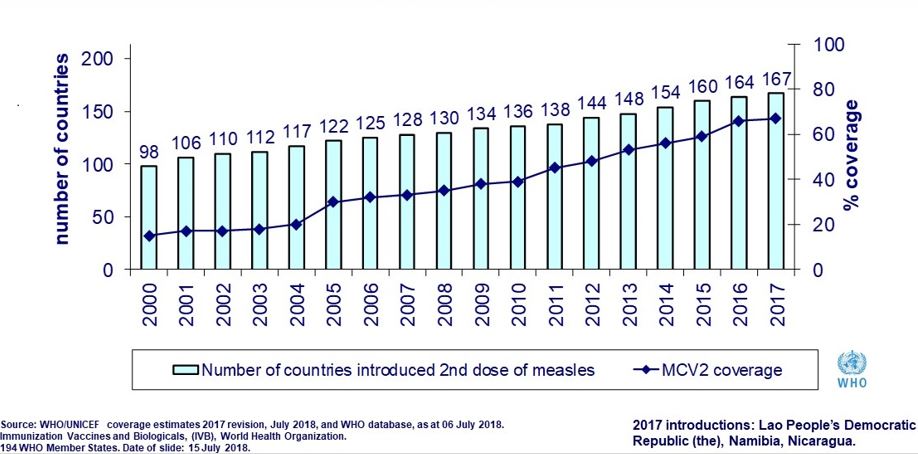January 09, 2020
Measles is on the rise in many regions, including Europe.
Vaccines were effective in decreasing prevalence but in recent years gained have stalled due to misconceptions

Vaccination rates vary by region but are not sufficient for herd immunity in many areas

Source: Statista and the World Health Organization

Source: Popular Science
Health Complications of Measles
Measles is highly contagious. The virus remains active in the air and on infected surfaces for up to 2 hours. First signs include fever, runny nose, cough, and watery eyes. After several days, a rash erupts, and then spreads.
Serious complications are most common in children under the age of 5 or adults over the age of 30. These include blindness, encephalitis, severe diarrhea and related dehydration, ear infections, or severe respiratory infections such as pneumonia.
“Severe measles is more likely among poorly nourished young children, especially those with insufficient vitamin A, or whose immune systems have been weakened by HIV/AIDS or other diseases. The overwhelming majority (more than 95%) of measles deaths occur in countries with low per capita incomes and weak health infrastructures.” (World Health Organization)
Prevention and Treatment
The measles vaccine is safe and effective. It costs approximately $1 (U.S.) to vaccinate a child. Two doses of the vaccine are recommended. Over 1/3 of the infants not vaccinated against measles in 2017 were concentrated in 3 countries: India, Nigeria and Pakistan.
Severe complications can generally be avoided through supportive care: good nutrition, fluids, and oral rehydration solution. Antibiotics are advised to treat pneumonia and eye/ear infections. All children diagnosed with measles should receive two doses of Vitamin A supplements, given 24 hours apart. Vitamin A has been shown to reduce the risk of death by 50% and can prevent eye damage and blindness.
Why Should Companies Care About Measles?
Up to 40% of people with measles will get complications. Even in uncomplicated cases, people generally don’t feel completely back to normal for 2-3 weeks—a lot of time to be away from work either as an ill person or as a caregiver.
Measles is extremely contagious and can be transmitted up to 4 days before a person has a rash, so it can spread quickly around a workplace if there are many unvaccinated employees. This is a bigger risk in countries where vaccination rates are particularly low, or in clusters where they are waning.
Employers can play an important role in keeping the communities where they work and live healthy by correcting misconceptions about vaccines.3
What Employers Can Do
- Educate employees and families on the importance and safety profile of vaccinations as well as the risks related to measles
- Provide on-site vaccine programs for employees and dependents
- Ensure that vaccines are covered by either private health plans or the national/state health care system
- Include vaccine education and reminders in maternal and child health programs
- Make sure globally mobile employees have all necessary vaccines before traveling
More Topics
Articles & Guides- 1 | PBS. Measles patients are mostly children. Here’s why https://www.pbs.org/newshour/health/measles-patients-are-mostly-children-heres-why. Accessed November 1, 2019.
- 2 | World Health Organization. Fact Sheet: Measles. https://www.who.int/news-room/fact-sheets/detail/measles. Accessed November 1, 2019.
- 3 | European Centre for Disease Prevention and Control. Addressing misconceptions on measles vaccination. https://www.ecdc.europa.eu/en/measles/prevention-and-control/addressing-misconceptions-measles. Accessed November 1, 2019.
This content is for members only. Already a member?
Login
![]()

